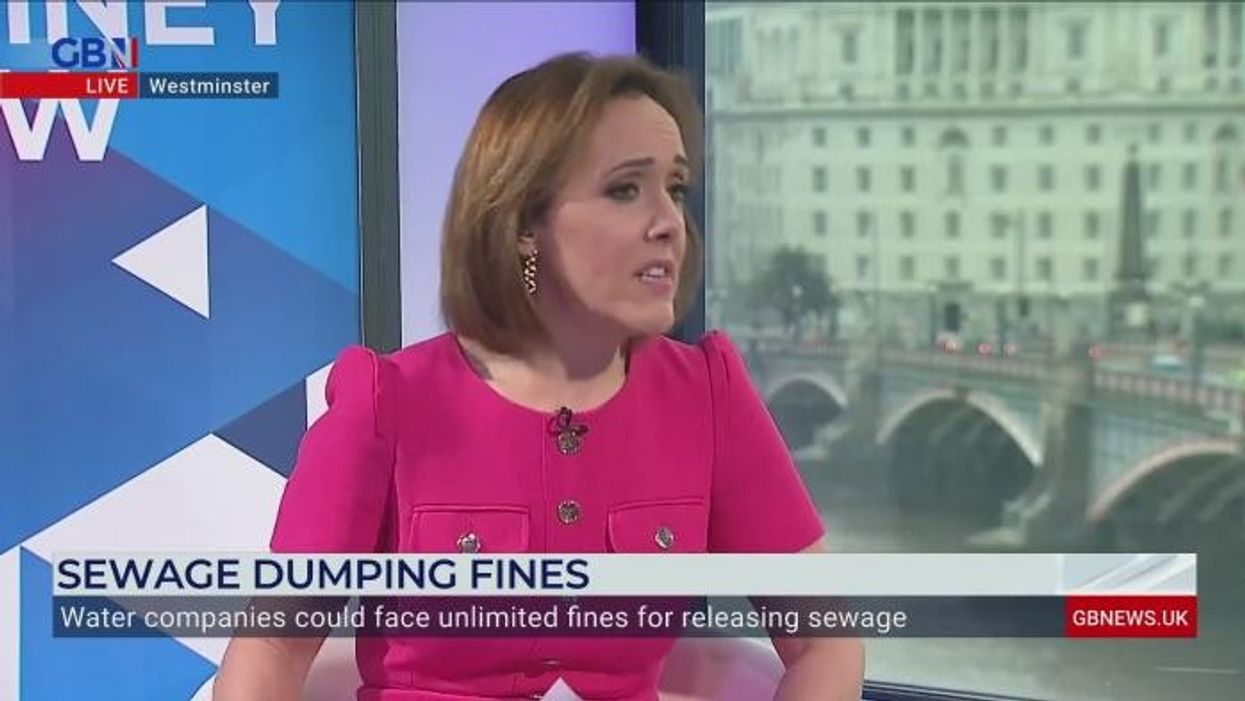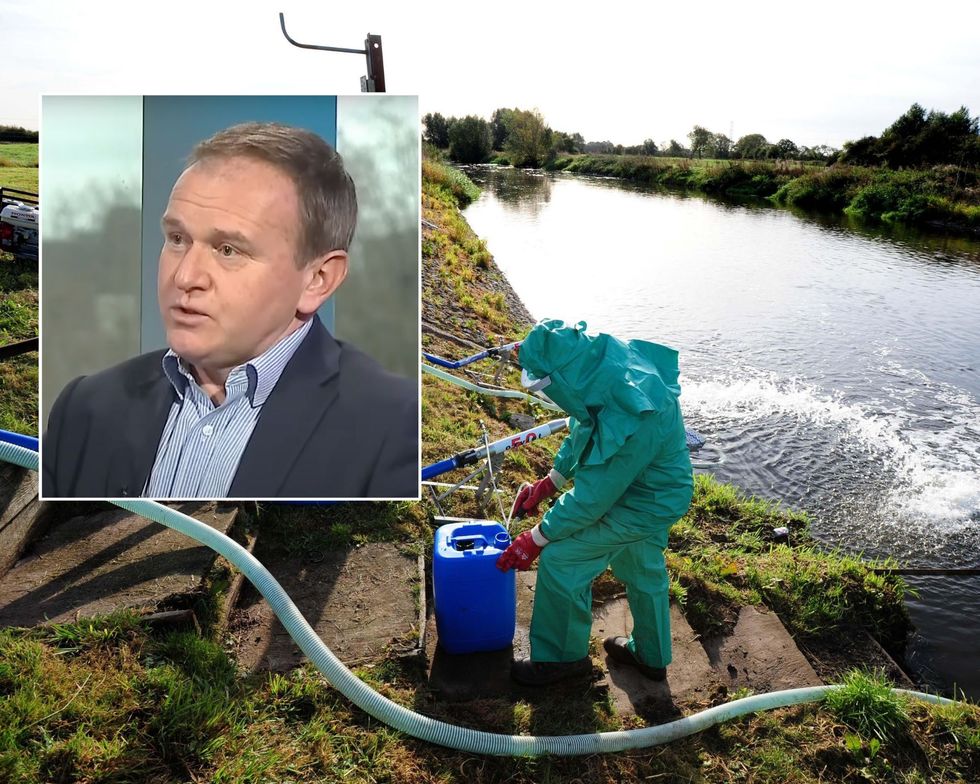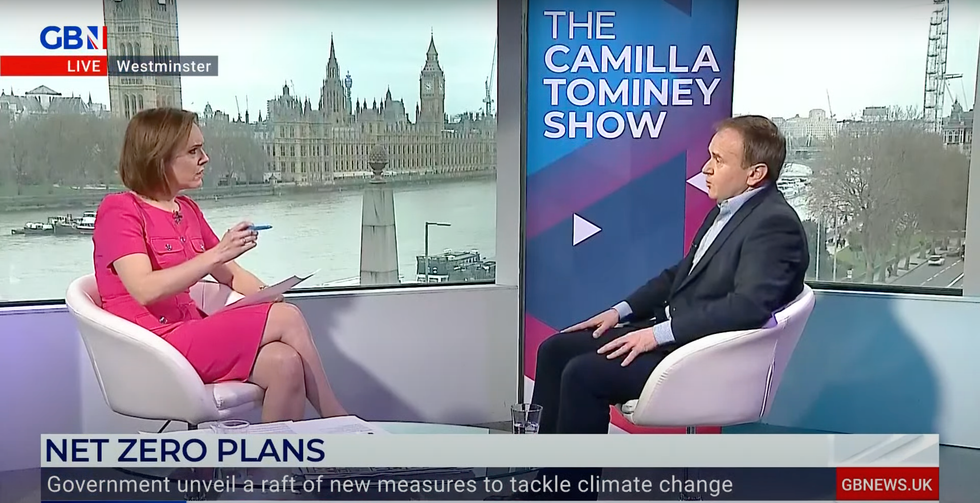Former Environment Secretary says water bills could TREBLE if river discharges were scrapped

George Eustice said scrapping river discharges would cost the UK £600bn
|GB News
George Eustice said stopping river discharges is completely is ‘unfeasible’
Don't Miss
Most Read
Brits could see water bills surge in price if water companies were stopped from discharging stormwater and sewage into rivers, a former Environment Secretary claims.
Speaking to Camilla Tominey on GB News, George Eustice said scrapping river discharges altogether would be "unfeasible" and £600 billion would need to be spent on the UK's sewage infrastructure.
The MP for Camborne and Redruthand defended the Government’s record on water quality and said its plan should reduce river discharges by 25 per cent within three years.
Water companies in Britain are allowed to discharge overflow from pipes into rivers and seas when there is too much rainfall.

Water companies in Britain are allowed to discharge overflow from pipes into rivers and seas when there is too much rainfall
|GB News/ PA
Eustice said: “It dropped dramatically last year, partly due to drier weather it has to be said, but we have a plan to reduce the harm from these by 25 per cent by 2025.
“And then beyond that, there’s £56 billion of investment that's already started to be spent and is going to effectively reduce the harm from the storm overflows by 2050.
“I think you're always going to need some of them, because to eliminate them altogether you need to spend about £600 billion on our sewage infrastructure and that's actually disproportionate to the problem.”
“If you spent £600 billion on that, you would see water bills probably treble.”
He added: “I know that people want an instant solution, we've given them an instant solution, in that there was a plan last July for £56 billion to be spent on it.
“But it will take three years to get a 25 per cent reduction and probably ten years to get it down further than that.
“People just have to accept that it takes a bit of time then it's not a new problem.”
When asked about the Government’s plan for net zero carbon emissions by 2050, he said: “Oil is a diminishing resource.

George Eustice said stopping river discharges is completely is ‘unfeasible’
|GB News
"It's increasingly going to be in the hands of regimes that we can't trust, as we've seen in the last year, and therefore you've got to as a point of energy security to have a strategy to reduce your reliance on fossil fuels.
“That's why you can still get petrol and diesel vehicles at the moment…the technology [for electric charging] is not quite there to deal with the range, and the infrastructure for charging, that's seven years away.
“A lot can happen in seven years. Look at what's happened in the last seven years. It was inconceivable you would have had any electric vehicles now there is a significant number.
“The Government still judges, and they've obviously looked at this, that it's right to keep that target in place, and it would be premature to make a change to that at the moment.”










